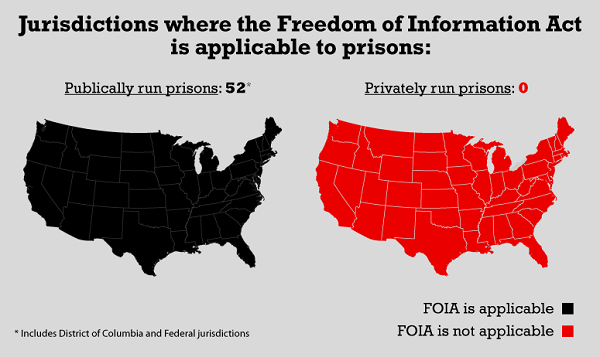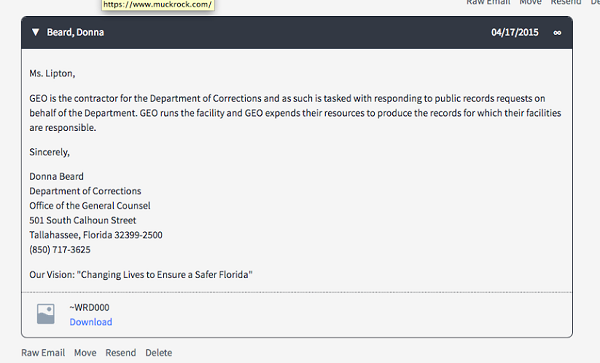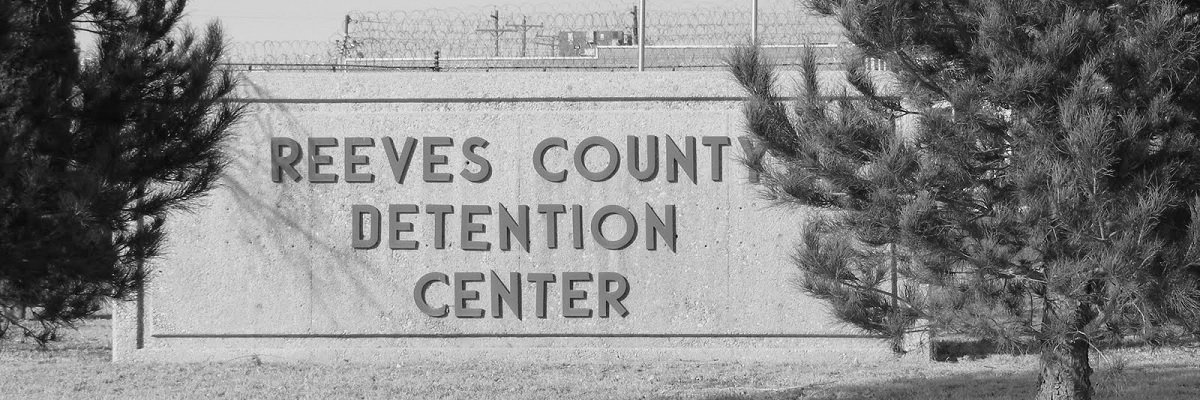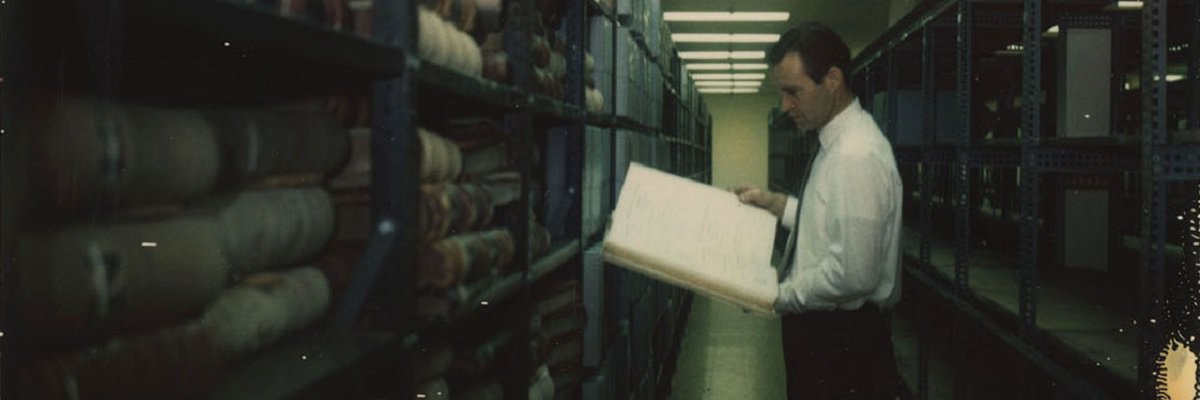How do you solve a problem like mass incarceration?
It’s the $80 billion dollar question across the United States, just one of several tough asks being posed by a nation needing to confront a criminal justice system too unruly to ignore. The nasty business of incarceration in this country — deemed a task left to the government arbiters of justice — has been publicly unscrutinized for so long that the average American bystander probably doesn’t realize that in many places, the government outsourced that responsibility long ago.
MuckRock launched the Private Prison Project exactly a year ago. It was the start of a look at the big players who stand the most to gain from America’s obsession with calling people problems and then locking those problems away; unfortunately, these companies also have the leeway of hiding away all their records.

Image courtesy of Citizens for Responsibility and Ethics in Washington.
Well, almost all of them. Sure, they aren’t explicitly subject to Federal Freedom of Information Act, but when your biggest customer is the U.S. government, there must be some things that U.S. citizens are entitled to see — first and foremost, the contracts that lock the taxpayers into these services.
Corrections Corporation - Red
GEO Group - Blue
Management and Training Corporation - Green
So we started requesting responses to agencies’ contract announcements, the contracts and their amendments. It had already been established that the contracts contained bed quotas, but there are also other patterns — template language giving companies power over who they will and won’t hold, regular increases in per diem rates, and few imposed regulations on the use of inmate labor or mandatory reporting requirements — that suggest an imbalance of power between the government and companies in these negotiations.
Even when certain materials were required, the government claimed to not have them. Other times, the companies have turned out to be in control of any potentially damning internal goings-on.

When the prison industry first started blossoming, the efficiency of private enterprise was toted as the answer to the slow bureaucracy that made it difficult to build and hire at a useful pace. Early considerations pointed out that there were possible drawbacks that could come with incentivizing incarceration, but there were also possible benefits. If private companies could do it more efficiently, then isn’t there something for the government to learn from that? Unfortunately, the information that would be useful isn’t available or isn’t collected, a reflection of record-keeping shortcomings across the system; even when the number is deaths in custody, high-level oversight is not mandatory.
And there are many different hands that want their fingers on the prison game: food service providers, telephone service providers, construction companies, cash-strapped towns, private medical providers, and ex-government employees. Last year the CEO of GEO Group made about 30 times more than his counterpart at the Bureau of Prisons.
So we’re moving forward. We’ll continue trying to collect grievances, from both inmates and employees. We’ll gather the seemingly mundane, like sewage and water bills. And we’ll keep poking where we’ve been told we can get no where, because public records can be like a contrast agent, giving a sense of how the flow works and where the holes are.
When companies text elected officials about business deals, it’s not just a sign of public-private camaraderie; the fact that they don’t need to be retained is an indication that our records laws need examination too.
We’ve launched inquiries into solitary confinement and the use of inmate labor, medical care and inmate transfers, immigration detention centers and juvenile detention.
We’re still trying to deal with our initial question. We can’t do it without facts. And we can’t do it without help. Are you interested in how a particular prison works? Do you know something we don’t? Do you want to help us look? Reach out. We’ll help you start asking your own questions about the who, what, where, when and why of mass incarceration.
Image by WhisperToMe via Wikimedia Commons




